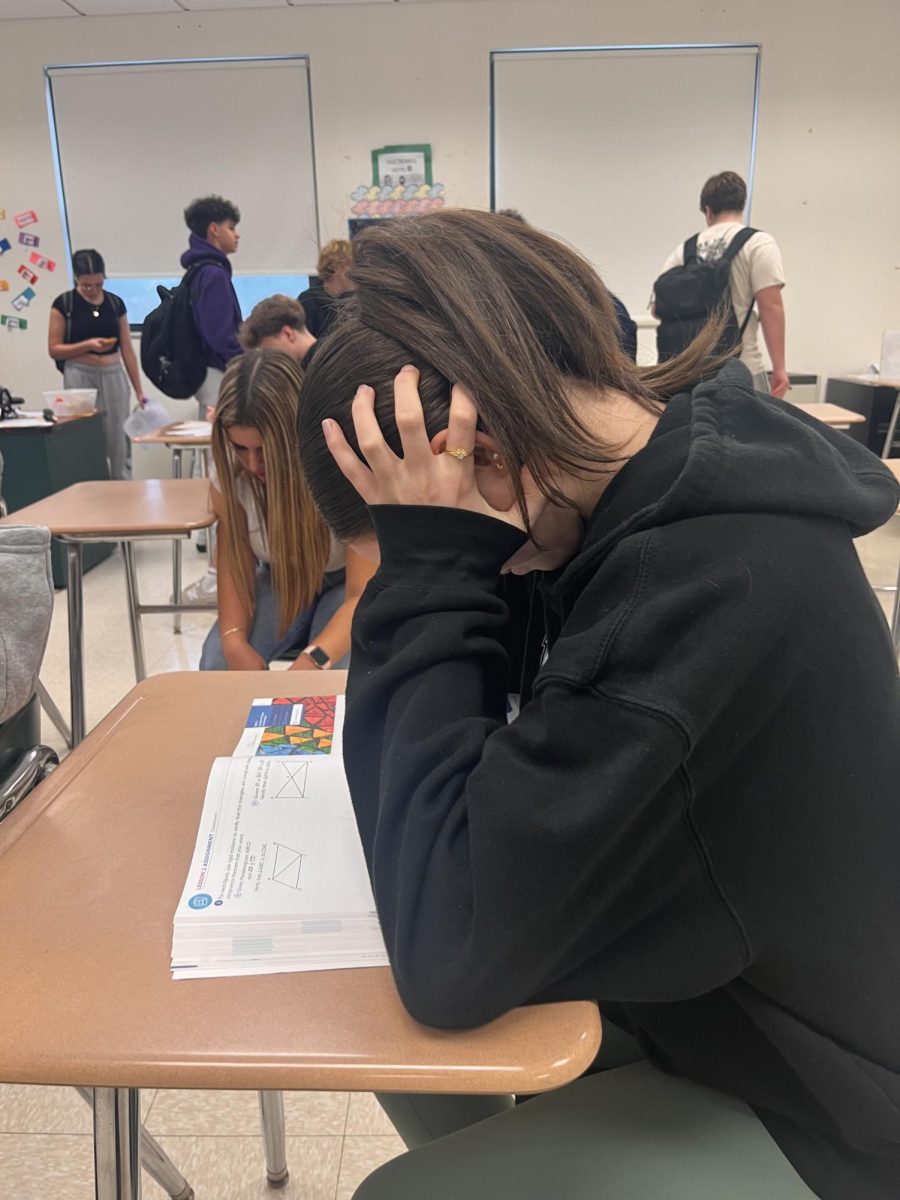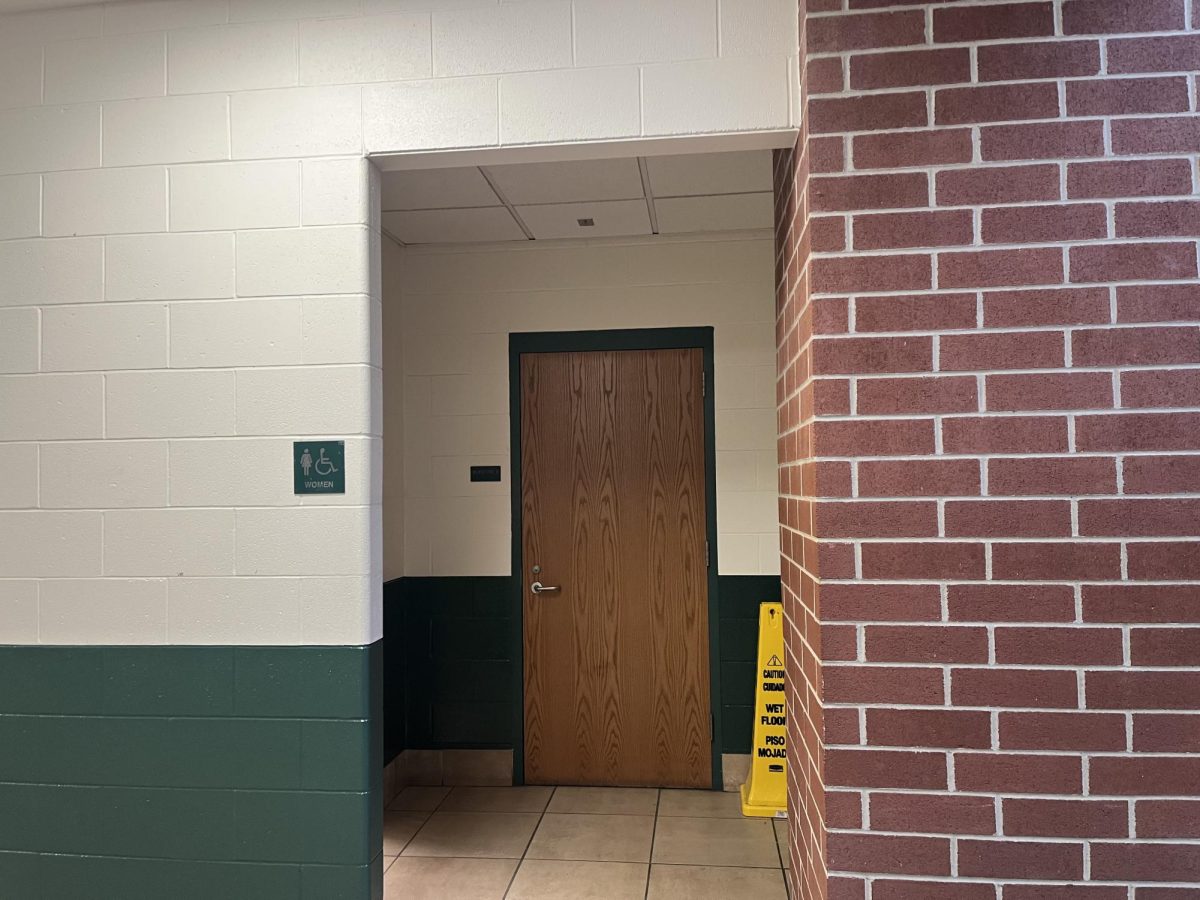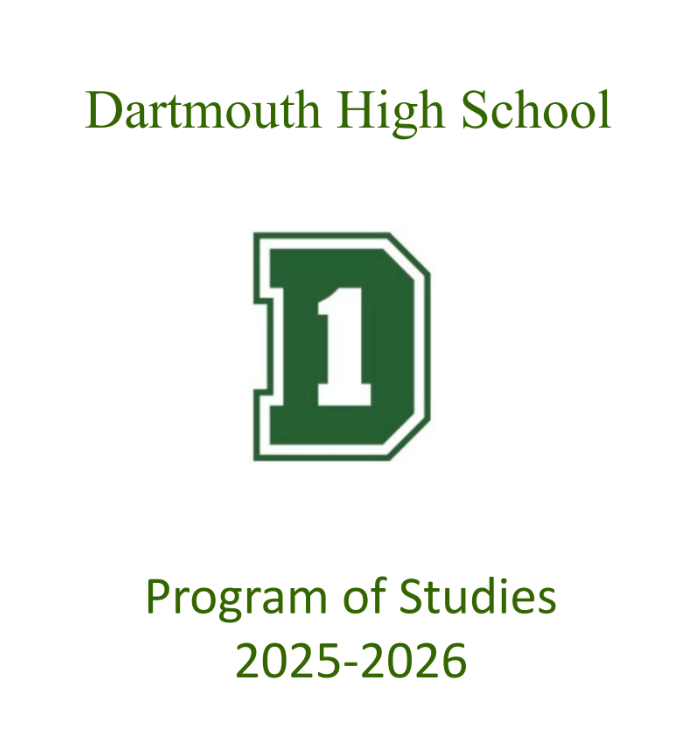If you’re in Algebra 1, Geometry, or Algebra 2, I’m sure you’ve had to use Carnegie Learning and have formed your own opinions one way or another. But if you don’t know what Carnegie Learning is, it is a new math curriculum for this year, and future years if the department decides to keep it. It includes a large workbook/textbook, an online learning platform called MATHia, and occasionally a packet of notes. The Carnegie Learning curriculum is aimed at furthering critical thinking and growing the ability to actually understand what has been taught.
However, I view it more as a curriculum directed towards teaching students how to complete one specific problem and nothing else. Though autocorrect did try to finish the word curriculum with “cirrhosis of the mind,” which may be even more correct seeing as the definition of the term includes losing sleep, causing confusion, and changing your mood, concentration, and memory, all of which should be included in the definition of Carnegie Learning.
The Carnegie Learning book, at least for geometry, has taught me absolutely nothing, to be frank. We are meant to accomplish three activities in one period with no lesson whatsoever in advance. Previous math curriculums, such as Math Medic, included a lesson, followed by practice to reinforce the information. Specifically, Math Medic uses a discovery model where you get problems and then solutions/lessons. Carnegie throws you in the deep end and you better pray you can swim, because your teacher probably doesn’t know what to do either.
I don’t say this to be dramatic or to put down math teachers, but what could be expected if the math teachers were only given this curriculum the day before school began? With no advice on how to go about teaching this curriculum, the teachers were forced to figure it out for themselves and in return, so did the students. Students are meant to be like a mirror and reflect whatever their teacher is teaching them, yet because of Carnegie, students are being left in the dark with nothing to reflect. Grades are dropping and spirits are going with them.
On the other hand, MATHia is crucial to success in Carnegie Learning—at least that’s what the Carnegie Learning representative has to say. My teacher told us that someone from Carnegie was going to come to our school and advise the math teachers on what to do. The takeaway: do MATHia and you will succeed.
Personally, I find MATHia easy, and I’m sure many others do—mainly because there’s a hint button, and it rarely involves real math. Instead, it’s just a bunch of clicking buttons, but that will lead to success in the Carnegie world, I guess.
For example, in geometry class, we are currently “learning” about reflections and how to determine a line of reflection. We were given a MATHia assignment on this topic, and oh boy. The assignment consisted of clicking a button that said “reflection,” clicking a line of reflection out of four options, and placing the line of reflection where it tells you to. The system then reflects the shape for you, and the only question you have to answer is something along the lines of “does the reflected shape match the original shape?” and “are they similar, congruent, both, or neither?” On every problem the answers are the same: yes and both. When the answer to every question is the exact same, what am I learning?
And don’t even get me started on the tests in relation to all of this. The tests themselves require you to actually do the math, unlike what MATHia would lead you to assume, and are nothing like the activities within the book. In my class, my teacher pulled up a chart of our results for the first—and only—test of the term. The data was shocking. Not only did no one get a 100 in an Honors Geometry class, but roughly half of the class failed, according to the data. This wouldn’t be a big deal if we had more than one or two tests a quarter, or if our tests weren’t moved up to being worth 70% of our grade.
The issue is students aren’t being taught, don’t understand Carnegie Learning, and are only taking one or two tests a quarter, potentially making one test 70% of their grade. Not to mention the fact that, typically, you aren’t allowed to retake a test if you got 80 or above, sometimes even a 70 or above.
Take my current geometry grade for instance. I had a 100 in quizzes and in assignments, but I got an 80 on one test, and my grade dropped from a 100 to a 86. Now, I am aware that this isn’t a “bad” grade per se. But for someone who has never gotten a B in any class and ended Algebra 1 Honors with a 98 as my final grade, this 86 is completely out of character and could affect my future GPA. If everyone is failing, whose fault is it?
Stepping away from Carnegie, the math sequence at DHS has basically always been messed up, especially when it comes to having to double up in your classes. The required math classes at DHS are Algebra 1, Geometry, Algebra 2, and one other math class of your choice (AP Statistics, Pre-Calculus, or AP Calculus). This wouldn’t be an issue if people didn’t have to take prerequisite classes, like having to take Pre-Calc in order to take AP Calculus AB or BC. This already guarantees that you will have to double up one year or take summer classes, but what if someone wants to take AP Calc and AP Stats? If this is the case, the student would have to double up once again. This wouldn’t be too big of a deal if doubling up didn’t also prevent said student from taking other classes that they want to.
One major argument about the math-class-taking schedule is that some schools, such as Friends Academy, teach Algebra 1 in eighth grade—but Dartmouth Middle School still teaches general math in eighth grade. If Algebra 1 was taught in eighth grade at DMS, then students could take geometry freshman year, Algebra 2 sophomore year, pre-calc junior year, and AP Calc senior year, assuming that said students would be trying to reach AP Calc. This would create a clear pathway that most students could follow, while allowing students to take other classes to prepare themselves for their future career—or, to even test out what they would be doing in certain occupations via internship, which takes up two whole credits.
If the school wants to keep the Carnegie Learning curriculum—though I heavily disagree with this—then they have to get the entire math department to sit down and figure out what they are doing. Because honestly, everyone is completely lost. I would even argue that there should be one big meeting between the math departments from both DMS and DHS to create a plan about the math class pathway and how to actually benefit the students instead of just doing the bare minimum. At this moment in time, both the Carnegie curriculum and the messy math pathway are setting students up for failure, not success.
















Annica • Nov 5, 2024 at 6:33 pm
I liked Math Medic overall because, as you alluded to, its lessons clearly illustrated the concepts and the reasoning behind them. I find it hard to be successful in math without a strong foundation. Carnegie doesn’t really have clear introductory lessons to each topic, so it’s a struggle to build a solid foundation.
Landon A • Nov 5, 2024 at 10:51 am
I think the book itself is very plain and has nothing to it. Last year’s Algebra 1 Math Medic curriculum was very boring as there were no computer-based assignments. This year’s curriculum does nothing to improve on last year’s, and is actually more confusing for being introduced this year. I do think the MATHia’s are important towards the test and I personally think most of the homework assignments are not useful towards the test, which are 70% of the grade.
Ahmed R • Nov 5, 2024 at 8:51 am
the questions themselves seem fine
if the teachers had more time to learn how to use the curriculum and actually supplement it effectively this is a pretty good deal
tbh we would absorb a lot of algebra 1 easier if it was just took it in like 6th or 7th, it sounds crazy but with proper prealg training in elementary where you generally absorb info better, you would be able to do it
also, for people who wouldn’t take Precalc before calc probably already know how to do it, otherwise it is a terrible idea to skip precalc outright, instead of taking it over the summer
Imma self study twice, so I can take Calc III, again, there is nothing wrong with this system other than the difficulty of obtaining permission to self study since they slashed Advanced Math 1, there’s no problem with anything else about the path to calc, you have to remember calc is not a typical high school math class
oh yeah I totally get the tests thing, I love 70% tests in classes that im good at but hate them in classes I suck in
think of these two as interim years, where the math dept is trying to figure out how to proceed with new material / conditions, I believe they are compotent enough to figure it out